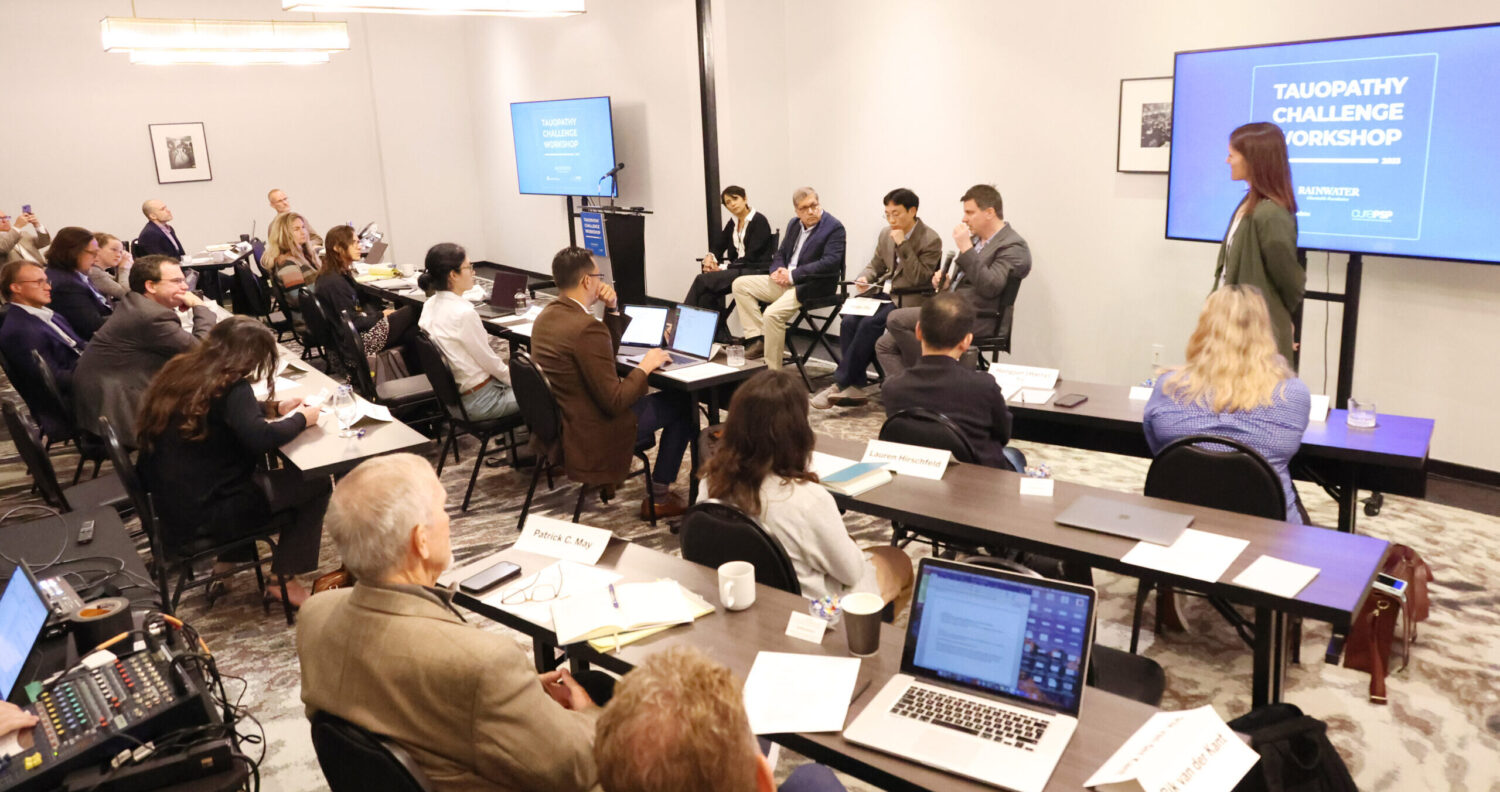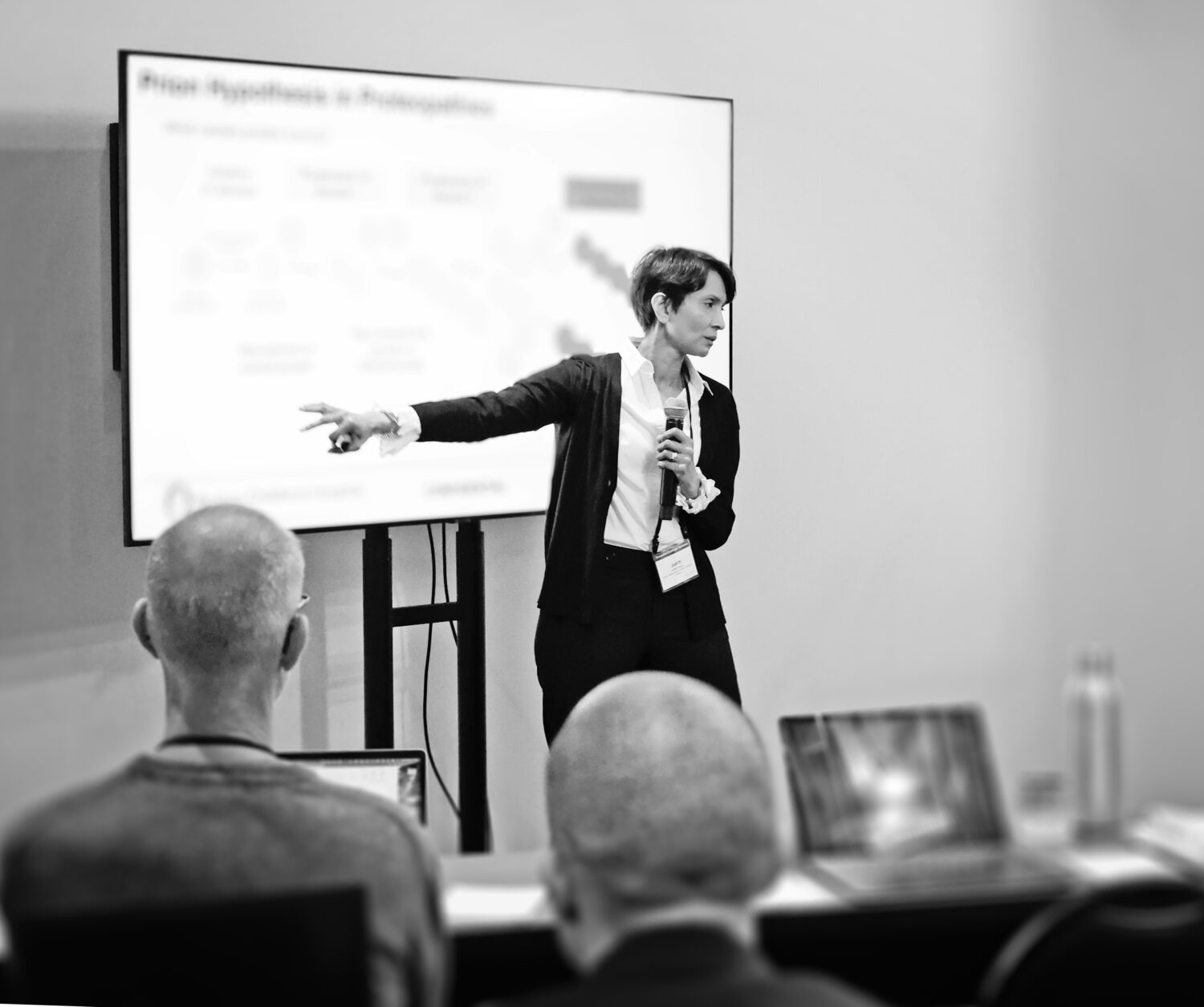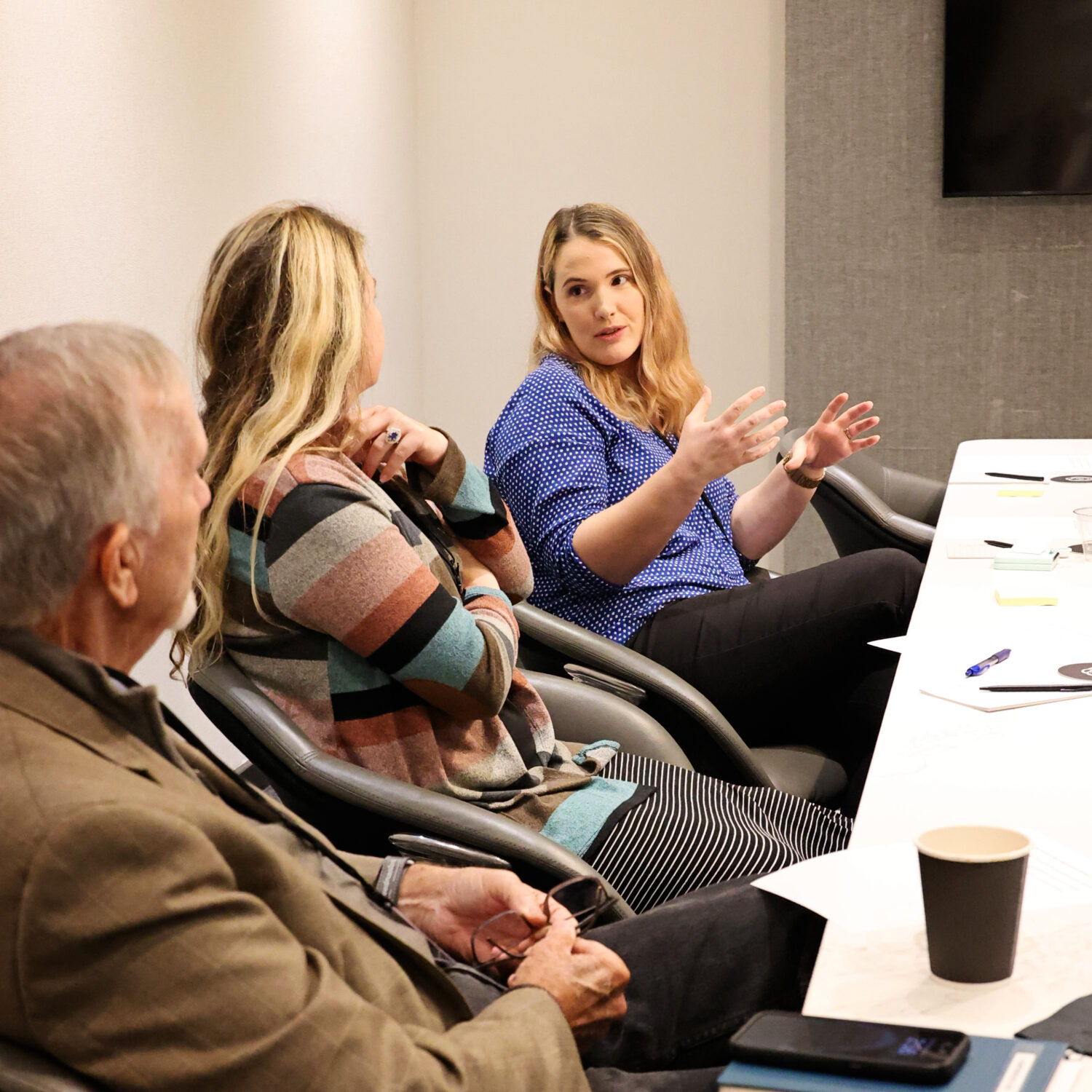The Tauopathy Challenge Workshop, hosted by The Rainwater Charitable Foundation (RCF) in partnership with CurePSP and the Aging Mind Foundation, brought together a brilliant cohort of researchers with diverse specialties and backgrounds in pursuit of answers to one of the most enigmatic neurodegenerative conditions. The aim was to tackle the perplexing challenges surrounding primary tauopathies, with a particular focus on Progressive Supranuclear Palsy (PSP) and Frontotemporal Dementias (FTDs).
Participants were selected through a competitive Letter of Intent (LOI) process, with the pursuit of identifying novel ideas from researchers with diverse specialties and backgrounds to solve for key gaps in the mechanisms underlying the pathology of primary tauopathies.
Converging in Chicago, the selected participants came together for a two-day workshop to make strides in the ongoing fight to tackle the challenges surrounding primary tauopathies. The workshop was designed not only to foster collaboration, but also to create a space for interdisciplinary alignment in the face of the daunting challenges that primary tauopathies present.

Bridging Gaps in Our Knowledge
The workshop’s sessions were structured to explore key aspects of primary tauopathies, such as the intricate network of proteostasis. This focus on proteostasis—the complex system of proteins that work together to regulate the folding and degradation within our cells—is pivotal in understanding the toxic accumulation of tau proteins. The group explored strategies that may be used to restore proper regulation of the many pathways of proteostasis.

Another central topic was neuroinflammation in tauopathies, a subject that’s gaining increasing attention. The research focuses on the activation of microglia and astrocytes, the production of inflammatory cytokines, and the recruitment of immune cells to the brain. It is thought to play a role in several neurodegenerative diseases. However, the extent of neuroinflammation-associated mechanisms contributing to neurodegenerative disease is poorly understood. Despite this knowledge gap, targeting neuroinflammation as a therapeutic mechanism of action is a growing approach for neurodegenerative diseases, including the primary tauopathies. The interplay between inflammation and tau pathology remains a subject of great interest and is considered a potential avenue for therapeutic interventions.
Lastly, participants delved into the mechanisms of tau transport within the brain. Tau is important for maintaining the structure of microtubules which are essential for the transport of materials within neurons. Tau is transported within neurons via axonal transport processes (primarily for microtubule stabilization) and trans-synaptic transport processes (important for forming and maintaining synapses). Modified and diseased forms of tau (e.g., phosphorylated, aggregates, degraded fragments, mutated or misfolded forms, environmental contaminants) may disrupt tau transport. However, the mechanisms behind potential transport disruptions are poorly understood. Investigating how tau transport may be perturbed will improve the field’s understanding of what is implicated in diseased states.
An Incentive to Drive Progress

For the researchers who participated, the rewards extended beyond the intellectual exchange. Invited participants received a grant of $10,000 for their participation in the workshop. More importantly, they were given the opportunity to submit proposals for research funding, with grants extending up to $500,000. Our aim is to support their innovative ideas into practical, impactful research projects that may ultimately lead to breakthroughs in the field.
We want to give a special thanks to CurePSP and the Aging Mind Foundation. This collaborative effort is a testament to the power of interdisciplinary research, persistence, and the unyielding spirit of those determined to solve the challenges that surround tauopathies. It’s a bold stride toward a world where primary tauopathies are no longer a mystery but are instead met with effective treatments and, eventually, a cure.

